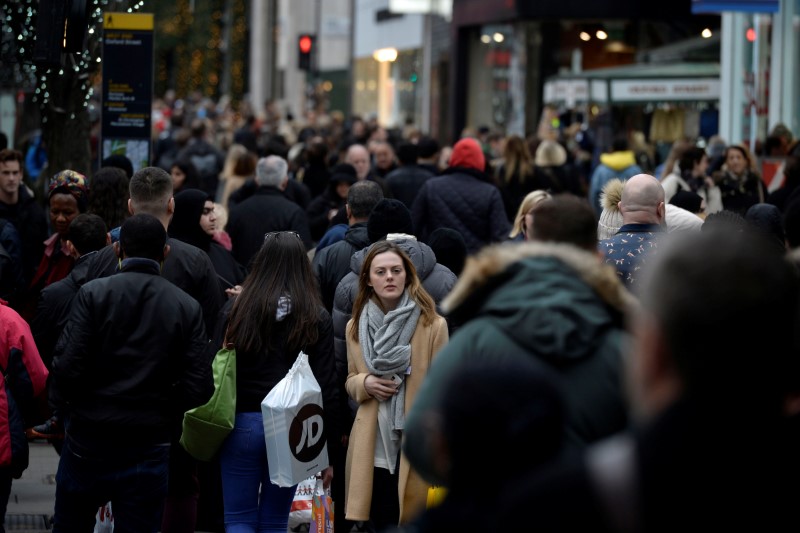LONDON (Reuters) - British shop prices fell less sharply in June than in May but shoppers could take some comfort from that food price inflation did not accelerate, a survey showed on Wednesday.
Overall prices paid by shoppers were 0.5 percent lower last month than in June 2017, a smaller decline than May's 1.1 percent slide, the British Retail Consortium (BRC) said.
Shop prices as measured by the BRC have shown deflation for 62 straight months, reflecting the pressure on retailers to offer discounts to win over shoppers, many of whom have seen sub-inflation pay increases for much of the past decade.
Food inflation held steady at 1.2 percent in June while non-food prices fell by 1.6 percent, less steep than May's 2.5 percent decline, the BRC said.
"Food shoppers can breathe a sigh of relief with the rate of food inflation remaining steady and retailers continuing to fight back against a tough trading environment with competitive pricing and deals," BRC Chief Executive Helen Dickinson said.
"Changes in global food prices of dairy and cereal as well as higher oil prices will mean this battle looks set to continue in the coming months."
Britain's headline inflation rose sharply after the 2016 referendum decision to leave the European Union which pushed down the value of the pound. But the impact of the weaker currency has diminished in recent months.

The Bank of England expects inflation, which stood at 2.4 percent in May, to slow further this year from a peak of 3.1 percent in November. It also expects to raise interest rates gradually to help bring inflation back to its 2 percent target.